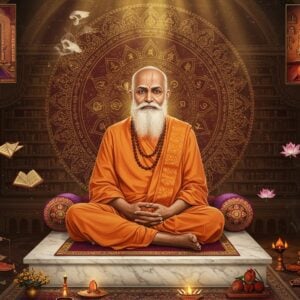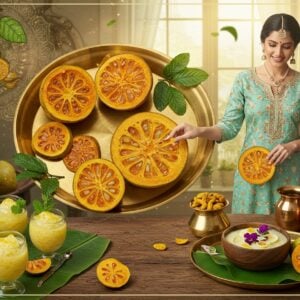Hinduism, a faith followed by millions, represents more than just a religion; it’s a way of life deeply woven into the cultural fabric of India and beyond. This article delves into the core beliefs and practices of Hinduism, offering a glimpse into the fundamental principles that guide its devotees.
Historical Background
A Glimpse into Hinduism’s Origins
Hinduism’s origins stretch back over 4,000 years, establishing it as one of the world’s oldest surviving religions. Born in the Indian subcontinent, its history is inextricably linked to the region’s cultural and philosophical development. Key historical milestones include:
- The Vedas: These ancient sacred texts serve as the bedrock of Hindu philosophy, containing hymns, prayers, and rituals that form the basis of Hindu religious practice.
- The Upanishads, Mahabharata, and Ramayana: These epic narratives and philosophical treatises expand upon Hindu teachings, exploring themes of dharma, karma, and moksha, and providing moral and ethical guidance.
- Influence of Dynasties: The Maurya and Gupta empires played pivotal roles in the dissemination and evolution of Hinduism, supporting its growth and influencing its practices across the Indian subcontinent.
- Sages like Adi Shankaracharya: These influential figures revitalized and systematized Hindu philosophy, ensuring its continued relevance and impact on spiritual thought.
- Colonialism and Modernity: These periods brought significant changes, influencing Hindu practices and beliefs as the religion adapted to new social and political landscapes.
Core Beliefs
Understanding Hinduism’s Key Principles
Several core beliefs characterize Hinduism:
- Dharma: This concept represents duty, righteousness, and ethical conduct, guiding individuals towards fulfilling their responsibilities and living a virtuous life.
- Karma: This principle of cause and effect emphasizes the impact of actions on one’s present and future lives, shaping the individual’s journey through samsara.
- Samsara: The cycle of birth, death, and rebirth is a central tenet, influenced by karma, and liberation from this cycle is the ultimate spiritual goal.
- Moksha: Liberation from samsara, achieved through spiritual practice and understanding, represents the ultimate goal of Hindu spiritual life. It signifies the release from the cycle of rebirth and union with the divine.
- Atman and Brahman: These concepts represent the individual soul (Atman) and the universal soul (Brahman), and their interconnectedness is a fundamental principle of Hindu philosophy.
- Devas and Devis: These gods and goddesses are revered and worshipped in daily rituals and festivals, representing different aspects of the divine and playing important roles in Hindu mythology.
- Sacred Texts: Texts like the Bhagavad Gita hold immense importance, offering guidance on dharma, karma, and the path to moksha, and serving as a source of spiritual wisdom.
- Guru: The spiritual teacher plays a crucial role, guiding individuals on their spiritual journey and providing wisdom and support.
- Yoga and Meditation: These practices are essential for spiritual growth, helping individuals connect with their inner selves and progress towards moksha. They provide tools for self-discovery and spiritual development.
Practices and Rituals
Daily and Festive Traditions
Hinduism encompasses a wide array of practices and rituals:
- Daily Rituals: Practices like Sandhyavandanam (prayers at dawn and dusk) and Puja (worship) are integral parts of daily life for many Hindus, connecting them to the divine and maintaining spiritual discipline.
- Festivals: Diwali, Holi, Navaratri, and other festivals are vibrant celebrations that bring communities together, honoring deities, marking seasonal changes, and reinforcing cultural values.
- Vrata (Vows) and Fasting: These acts of devotion and self-discipline are undertaken to purify the body and mind, demonstrate commitment to spiritual goals, and seek blessings from deities.
Deities and Iconography
Hinduism is renowned for its diverse pantheon of deities, each embodying various facets of life and the universe.
- The Trimurti: Brahma (the creator), Vishnu (the preserver), and Shiva (the destroyer) represent the fundamental forces of the cosmos, responsible for creation, sustenance, and transformation.
- Goddesses: Saraswati (knowledge), Lakshmi (wealth), and Parvati (power) are revered for their divine attributes, offering blessings and guidance to devotees.
- Avatars: Krishna and Rama, divine incarnations featured in Hindu epics, exemplify dharma and inspire devotion through their stories and teachings.
- Ganesha and Hanuman: Ganesha (remover of obstacles) and Hanuman (devotion and strength) are integral figures in daily life, invoked for their blessings and guidance.
- Iconography and Symbolism: Understanding the iconography and symbolism associated with deities provides deeper insights into their attributes, stories, and significance.
- Murti Worship: The worship of idols (Murti) serves as a focal point for devotion, connecting individuals with the divine and facilitating spiritual connection.
- Sacred Art: Rangoli and Mandalas, intricate art forms used in festivals and rituals, enhance the spiritual atmosphere and symbolize auspiciousness.
How Poojn.in Enhances Your Hindu Practices
Poojn.in is your one-stop shop for all things related to Hindu worship. We offer a wide selection of authentic products and resources to support your spiritual journey.
- Explore Our Diverse Collection: Discover a wide range of puja items, including camphor, incense sticks, and deity idols, all crafted with utmost care and reverence.
- Enhance Your Puja Experience: Find everything you need for a fulfilling puja, from sandalwood incense and rose incense to beautifully crafted puja thalis and essential accessories.
- Celebrate Festivals with Authenticity: Prepare for festivals like Diwali and Holi with our selection of traditional items, ensuring a vibrant and meaningful celebration.
Visit poojn.in today and embark on a deeper exploration of Hindu traditions and practices.
Conclusion
Hinduism’s rich history, profound teachings, and diverse practices provide a path towards spiritual growth and self-discovery. Its core beliefs, sacred texts, and vibrant festivals offer a wealth of wisdom and tradition. By engaging with these principles and practices, individuals can embark on a meaningful spiritual journey and connect with the divine.


